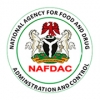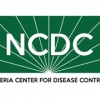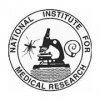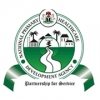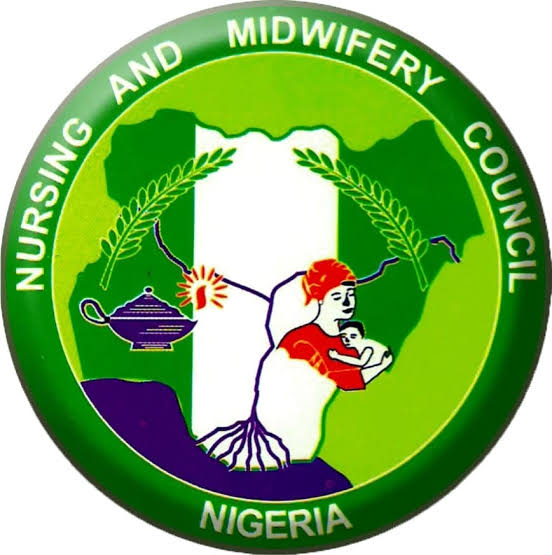FG COMMEMORATES 2022 WORLD NEGLECTED TROPICAL DISEASE DAY…
The Federal Government on Friday 28th January, 2022 commemorated the 3rd Edition of the World Neglected Tropical Diseases Day (WNTDD), aimed at raising public awareness about the menace of NTDs in Nigeria with the theme, “Achieving health equity to end the neglect of poverty related diseases”.
The Honourable Minister of State for Health, Dr. Olorunnimbe Mamora who held a Ministerial Press briefing at the Federal Ministry of Health, Headquarters in Abuja to mark this year’s celebration stated that the purpose of the WNTDD is to create global and national awareness to mobilize resources to address the magnitude of NTDs concern, provide opportunities for stakeholders to highlight the progress made, challenges encountered and advocate for support for the prevention, control and elimination effort in the fight against NTDs in Nigeria.
Dr. Mamora disclosed that the theme of the campaign could not have come at a better and more appropriate time than now, when World Health Organization (WHO) is organizing a virtual event calling on everyone to address the inequalities that characterize NTDs. “The WNTDD is an opportunity to re-energize the momentum to end the suffering from these 20 diseases that are caused by variety of pathogens including viruses, bacteria, parasites, fungi and toxins. The day will help us focus on millions of people who have limited or no access to prevention, treatment and care services.”
The recent roll out of the ten years NTDs roadmap for the period of 2021-2030 by the WHO on the 28th of January 2021, which proposed ambitious targets and innovative approaches towards tackling NTDs provide clear blueprint and direction towards NTDs elimination globally. The plan promotes working across NTDs in an integrated manner to deliver programme objectives of interrupting and eliminating NTDs with emphasis on three significant approaches; moving from process to impact measuring for accountability, putting in place effective multi-sectoral approach/integration across NTDs, countries ownership and political commitment for sustainability. In line with that Nigeria is currently reviewing her NTDs Master Plan to guide all stakeholders.
Mamora went further to say, that the FMoH has been collaborating and working with all relevant stakeholders particularly Non-Governmental Development Organizations (NGDO) partners to tackle the menace of NTDs in Nigeria. “I am particularly glad to report that substantial progress has been made over the decade as evidenced by the fact that we have been able to eradicate Guinea worm diseases, eliminated the transmission of Onchocerciasis in Plateau and Nassarawa States and very soon some other states will be free of the disease.
Other achievements of the Ministry include; the conduct of Mass Administration of Medicine on School based/ Community deworming programme and also Mass Drugs Administration on Lymphatic Filariasis, Schistosomiasis in the country; Out of 122 endemic LGAs for Trachoma in the country, 96 LGAs have attained elimination threshold for the active stage of the disease while 61 LGAs have attained elimination threshold for the blinding stage of the disease.

This has reduced the prevalence of Trachoma to about 6.9 million (79%) — Entomological survey 2017 conducted; On innovative management of NTDs, The programme has been able to develop a National Policy document on Snakebite management along with procurement of Anti-Snake venom (ASV) and distributed to designated Health Facility centres in six (6) geo political zone; Yaws case search was conducted in 3 communities in Plateau and Nassarawa States with over 40 cases isolated. The programme was operating on paper based reporting system but currently there is a training going on to strengthen M&E Unit to migrate from paper base of data to electronic reporting system using DHIS 2.0.
The programme also develop and train officers on the use of Logistics Management Information System (LMIS) tool to monitor drug distribution, consumption and report adverse effect of those drugs on pharmacovigilance forms in line with NAFDAC policy; A strong collaborative mechanism/platform to address sanitation and hygiene issues, with special attention given to policy to end Open Defecation in Nigeria; A WASH-NTD integration landscape analysis has been completed to present a desk review of existing studies, campaigns, WASH and NTD Plans (national, sub-national), gap analysis that underpin national WASH and NTD efforts to date”. The Minister seized the opportunity to appreciate all development partners for their support and contributions towards NTD elimination efforts in Nigeria.
Earlier the Permanent Secretary FMoH, Mr. Mahmuda Mamman, represented by the Director, Department of Public Health in the Ministry, Dr. Alex Okoh said globally, 30th January has been set aside by WHO to sensitize all Global communities on the burden of NTDs which is enormously affecting more than 1 billion people across the globe with about 149 countries faced with these diseases and Africa bearing about half of the global burden. Nigeria being the second country with the highest burden in the world also contributes substantially to the burden of Africa NTDs with more than 120 million of its people living at the risk of one neglected tropical disease or the other.
According to her, over the years the country has been battling seriously to eliminate most of these tropical diseases using the following approaches as Preventive Chemotherapy by conducting Mass Administration of Medicines, Morbidity Management and Disability Prevention, Integrated Vector Control, Sound Sanitation, Hygiene practices with safe water supply etc. “Currently, we are charting a new course of community engagement for tackling NTDs for sustainability and ownership.
I wish to intimate you all that, we are currently reviewing our Master Plan that will give the country a stronger direction based on our recent achievement to scale up intervention in order to meet the global target or dateline of leaving no one untouched and eliminating NTDs by 2030”.
Dr. Walter Kazadi Mulombo, the WHO, Head of Mission revealed that in Nigeria more than 1 million NTDs new cases are still being detected yearly, around 50 million persons are at risk of infection yearly. Health inequities triggered by COVID-I9 have undermined economic, societal, and developmental progress. He said focusing on NTDs provides a step forward in addressing diseases of poverty. “The NTD programmes contribute to stronger health systems by enhancing capacity, bringing communities together and contributing to universal health coverage”.
Present at the Press briefing were representatives from the Ministry of Water Resources, WHO; UNICEF; Helen Keller International; HANDS; Sight Savers; MSF; NGDO; representative of Inspector General of Police amongst others.
By: Blessing Efem
Signed:
Nwokike Brendan (Head Media & Public Relation Unit)


